
El Teatro Real: Faust
El Teatro Real: Фауст
The Teatro Real opened its 2018/19 season with a new production of Faust by Charles Gounod, the version of the German legend in a grand opera format. Piotr Beczała play the part of the protagonist - the figure of relentless ambition par excellence, while Marina Rebeka sings the role of Marguerite. Àlex Ollé directs this captivating opera after his recent success of The Flying Dutchman in this theatre It will be the third time that La Fura dels Baus stages the Faustian legend.
Actors
Crew
В большинстве современных оперных спектаклей ключ к режиссёрскому замыслу – в том, что режиссер показывает нам во время увертюры. В версии Королевского театра Мадрида, осуществленной Алексом Олле, одним из со-основателей знаменитой барселонской театральной группы La Fura dels Baus, доктор Фауст работает в проекте по созданию гомункула и смотрит на реальный мир через стекло лаборатории. В воображении доктора именно её сотрудникам суждено превратиться в персонажей старинного европейского мифа, который, через философскую драму Гёте и музыку Шарля Гуно, пришел в парижскую Гранд Опера 1859 года, чтобы стать самой популярной на свете французской оперой.
Ассистентка с пышными формами обернется Мартой с гипертрофированным пластиковым бюстом, её милая коллега в голубой гигиенической шапочке и голубых резиновых перчатках – прекрасной невинной Маргаритой (поэтому на протяжении всей оперы у главной героини голубые волосы и руки). Бравый секьюрити станет солдатом Валентином, а блондинка с высоким «хвостом» на голове – девицами из бара (кабачок Ауэрбаха в Лейпциге) и ведьмами в Вальпургиеву ночь. Из этой же лаборатории, из зазеркалья, появится по зову разочарованного и утомленного ученого Мефистофель, чтобы соблазнять и обманывать героев оперы. В одной из центральных сцен, когда оставленная Фаустом беременная Маргарита, желая помолиться, входит в церковь (в оригинале она останавливается у дверей храма), Мефистофель является ей в виде самого Христа и отпугивает от покаяния. Не ждите в этом спектакле балета, предусмотренного партитурой, но яркий миманс и выразительные свет и видеопроекции создают немало визуальных эффектов, погружающих в фантастический миф.
Главное достоинство мадридского «Фауста» – прекрасный и по-настоящему звездный состав. И на первом месте – потрясающая лиризмом, трепетностью звучания и искренностью образа Маргарита в исполнении всемирно известной латвийской сопрано Марины Ребеки. Не будет преувеличением сказать, что Ребека в нынешней стадии развития ее голоса оказалась лучшей Маргаритой современной оперной сцены. Она – лидер мадридского спектакля. Подстать ей и пылкий Фауст – знаменитейший польский тенор Пётр Бечала. В партии Мефистофеля – итальянский бас-баритон Лука Пизарони.
Act 1
Faust, an aging scholar, determines that his studies have come to nothing and have only caused him to miss out on life and love. He attempts to kill himself (twice) with poison but stops each time when he hears a choir. He curses science and faith and asks for infernal guidance. Mephistopheles appears, and, with a tempting image of Marguerite at her spinning wheel, persuades Faust to buy Mephistopheles’s services on earth in exchange for Faust's in Hell. Faust's goblet of poison is magically transformed into an elixir of youth, making the aged doctor a handsome young gentleman; the strange companions then set out into the world.
Act 2
A chorus of students, soldiers, and villagers sing a drinking song. Valentin, leaving for war with his friend Wagner, entrusts the care of his sister Marguerite to his youthful friend Siébel. Mephistopheles appears, provides the crowd with wine, and sings a rousing, irreverent song about the Golden Calf. Mephistopheles maligns Marguerite, and Valentin tries to strike him with his sword, which shatters in the air. Valentin and friends use the cross-shaped hilts of their swords to fend off what they now know is an infernal power. Mephistopheles is joined by Faust and the villagers in a waltz. Marguerite appears and Faust declares his admiration, but she refuses Faust's arm out of modesty.
Act 3
The lovesick boy Siébel leaves a bouquet for Marguerite. Faust sends Mephistopheles in search of a gift for Marguerite and sings a cavatina, idealizing Marguerite as a pure child of nature. Méphistophélès brings in a decorated box containing exquisite jewelry and a hand mirror and leaves it on Marguerite's doorstep, next to Siébel's flowers. Marguerite enters, pondering her encounter with Faust at the city gates, and sings a melancholy ballad about the King of Thule. Marthe, Marguerite's neighbour, notices the jewels and says it must be from an admirer. Marguerite tries on the jewels and is captivated by how they enhance her beauty, as she sings in the famous aria, the Jewel Song. Mephistopheles and Faust join the women in the garden and romance them. Marguerite allows Faust to kiss her, but then asks him to go away. She sings at her window for his quick return, and Faust, listening, returns to her. Under the watchful eye and malevolent laughter of Mephistopheles, it is clear that Faust's seduction of Marguerite will be successful.
Act 4
After being made pregnant and abandoned by Faust, Marguerite has given birth and is a social outcast. She sings an aria at her spinning wheel. Siébel stands by her. The scene shifts to the square outside Marguerite's house. Valentin's company returns from the war to a military march. Siébel asks Valentin to forgive Marguerite. Valentin rushes to her cottage. While he is inside Faust and Mephistopheles appear, and Mephistopheles, thinking that only Marguerite is there, sings a mocking burlesque of a lover's serenade under Marguerite's window. Valentin comes out of the cottage, now knowing that Faust has debauched his sister. The three men fight, Mephistopheles blocking Valentin's sword, allowing Faust to make the fatal thrust. With his dying breath Valentin blames Marguerite for his death and condemns her to Hell before the assembled townspeople. Marguerite goes to the church and tries to pray there but is stopped, first by Mephistopheles and then by a choir of devils. She finishes her prayer but faints when she is cursed again by Mephistopheles.
Act 5
Mephistopheles and Faust are surrounded by witches. Faust is transported to a cave of queens and courtesans, and Mephistopheles promises to provide Faust with the love of the greatest and most beautiful women in history. An orgiastic ballet suggests the revelry that continues throughout the night. As dawn approaches, Faust sees a vision of Marguerite and calls for her. Mephistopheles helps Faust enter the prison where Marguerite is being held for killing her child. They sing a love duet. Mephistopheles states that only a mortal hand can deliver Marguerite from her fate, and Faust offers to rescue her from the hangman, but she prefers to trust her fate to God and His angels. At the end she asks why Faust's hands are covered in blood, pushes him away, and falls down motionless. Mephistopheles curses, as a voice on high sings "Sauvée!" ("Saved!"). The bells of Easter sound and a chorus of angels sings "Christ est ressuscité!" ('"Christ is risen!"). The walls of the prison open, and Marguerite's soul rises to heaven. In despair Faust follows it with his eyes; he falls to his knees and prays. Mephistopheles is turned away by the shining sword of the archangel.


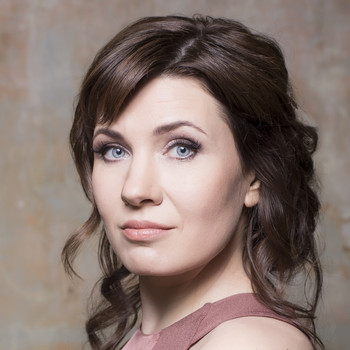

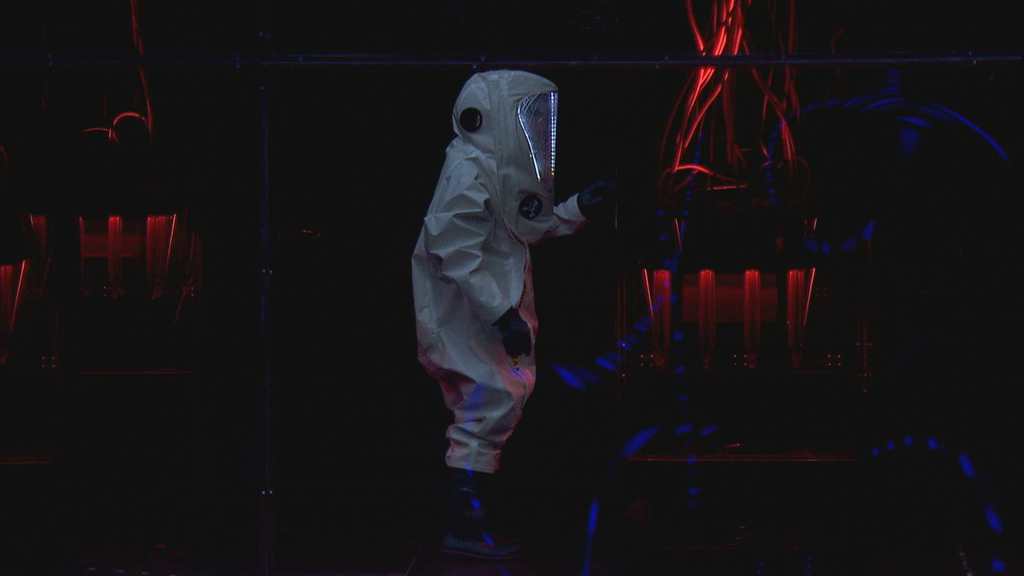
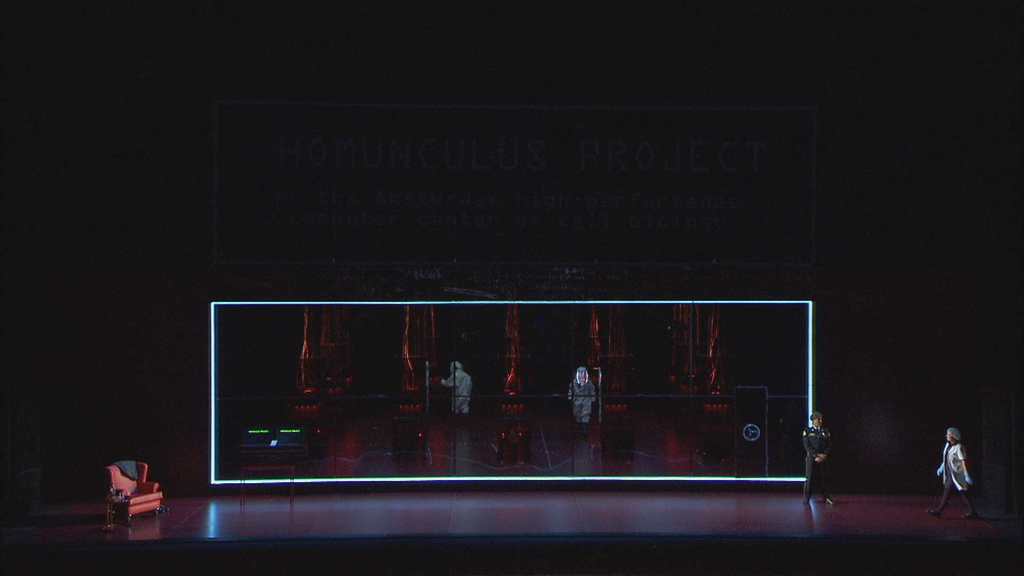
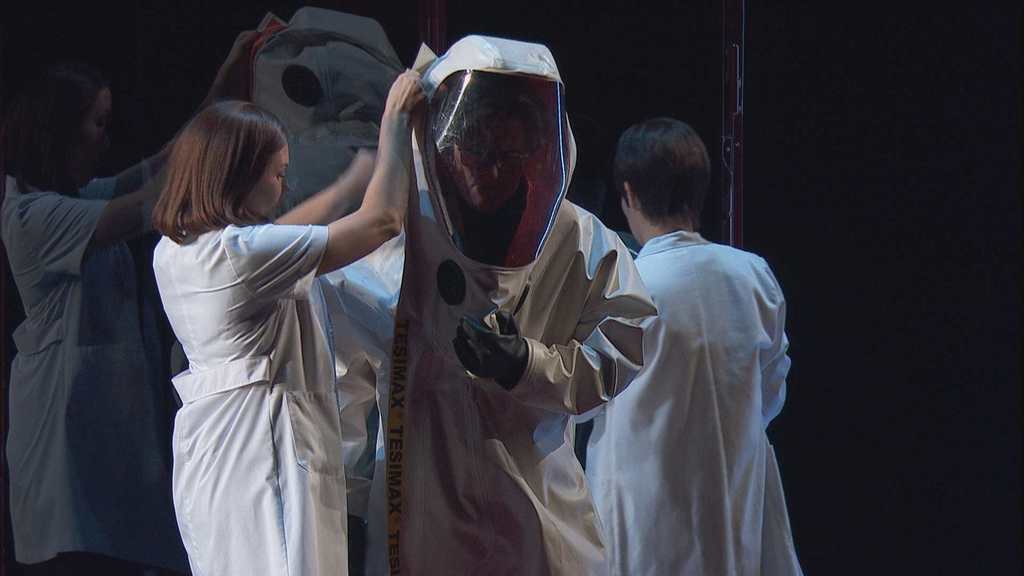
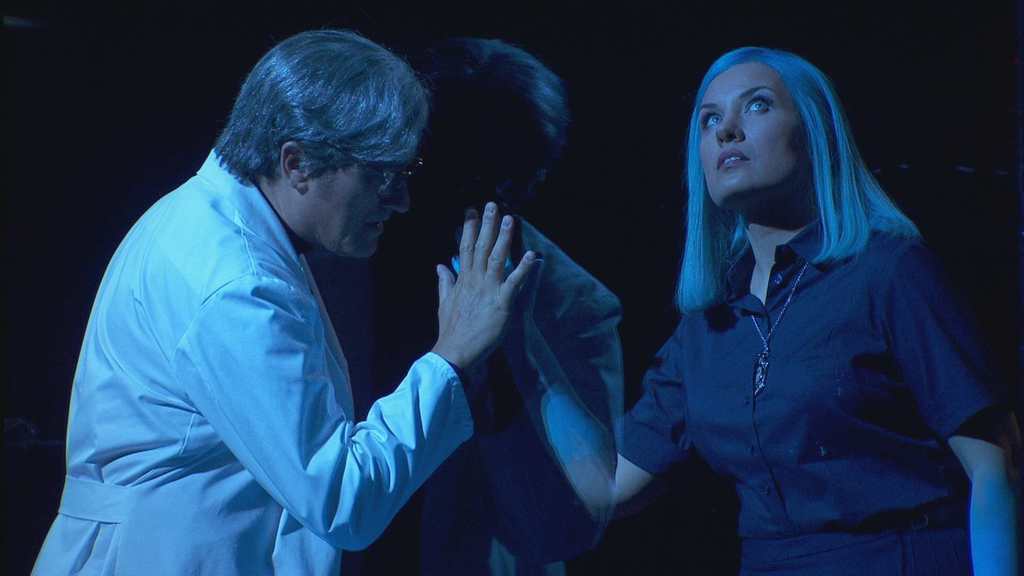
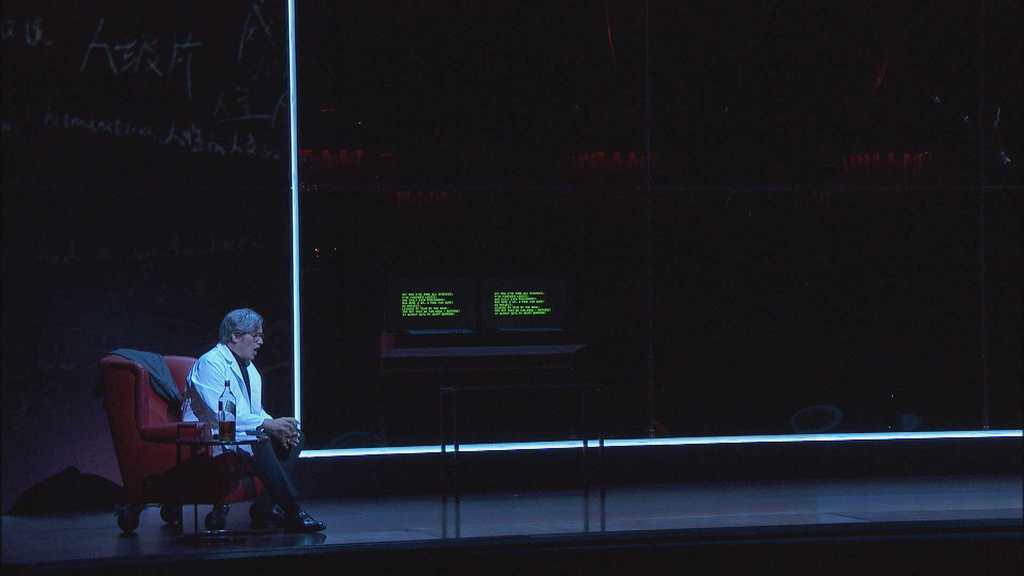
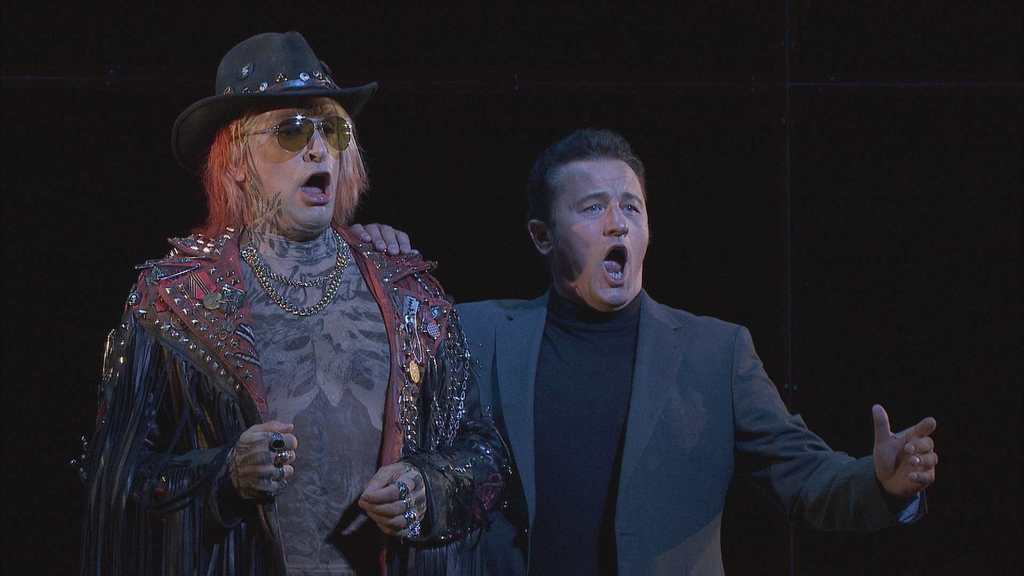
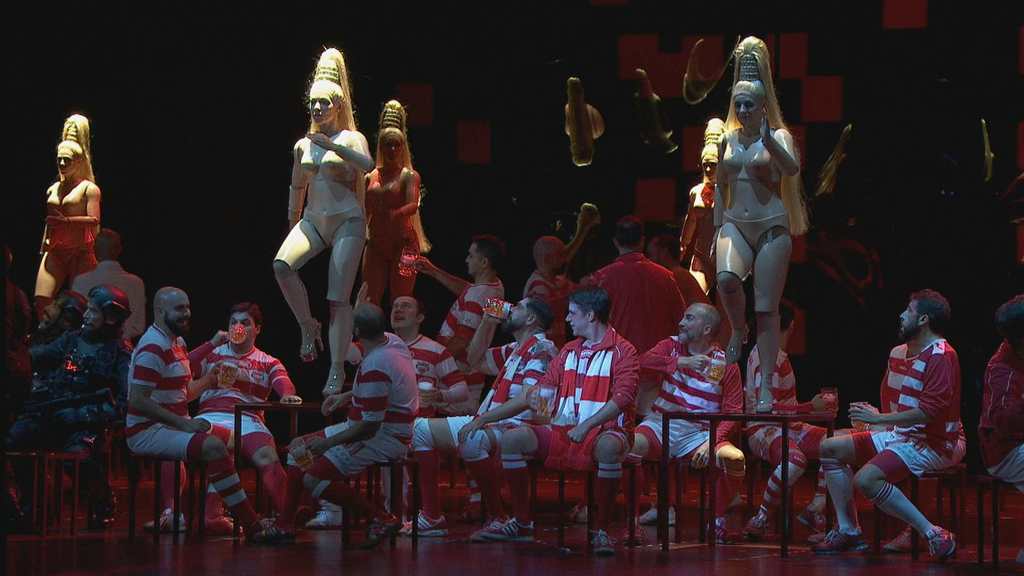
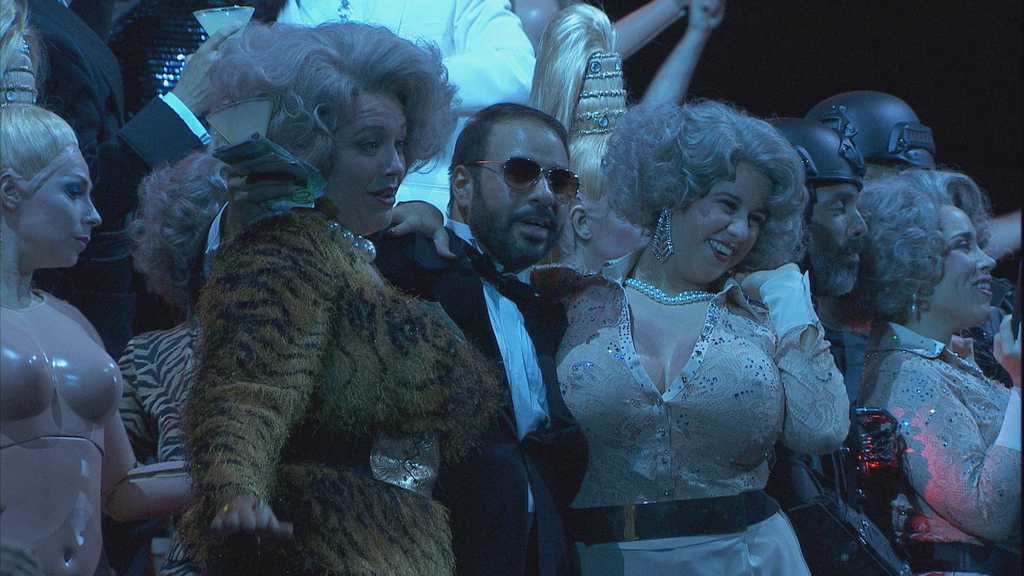
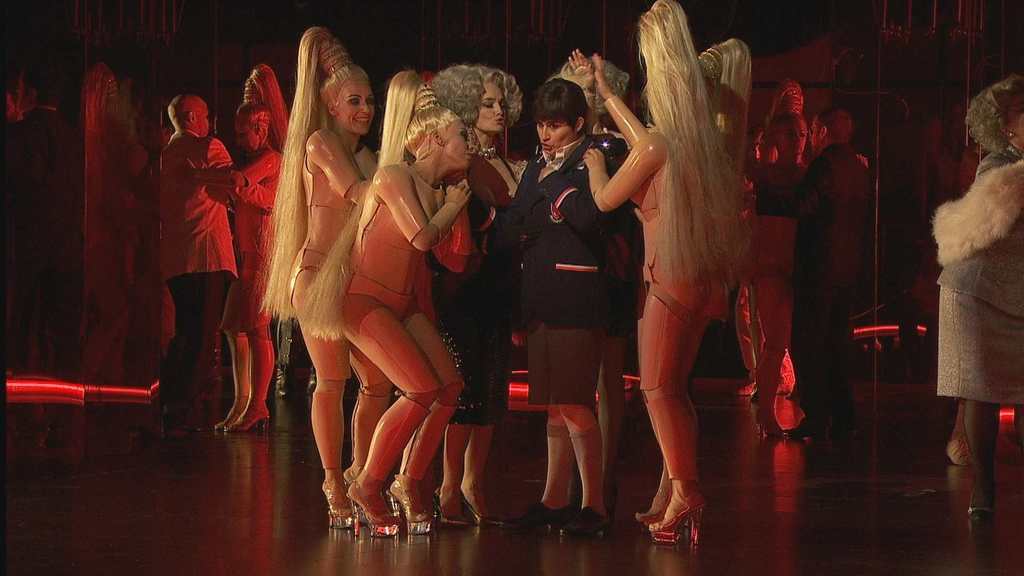
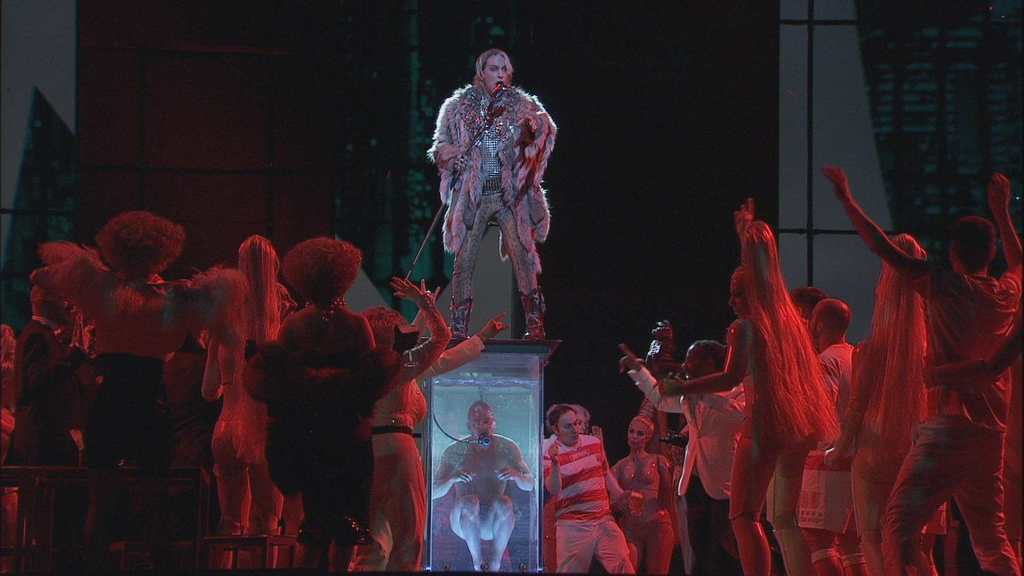
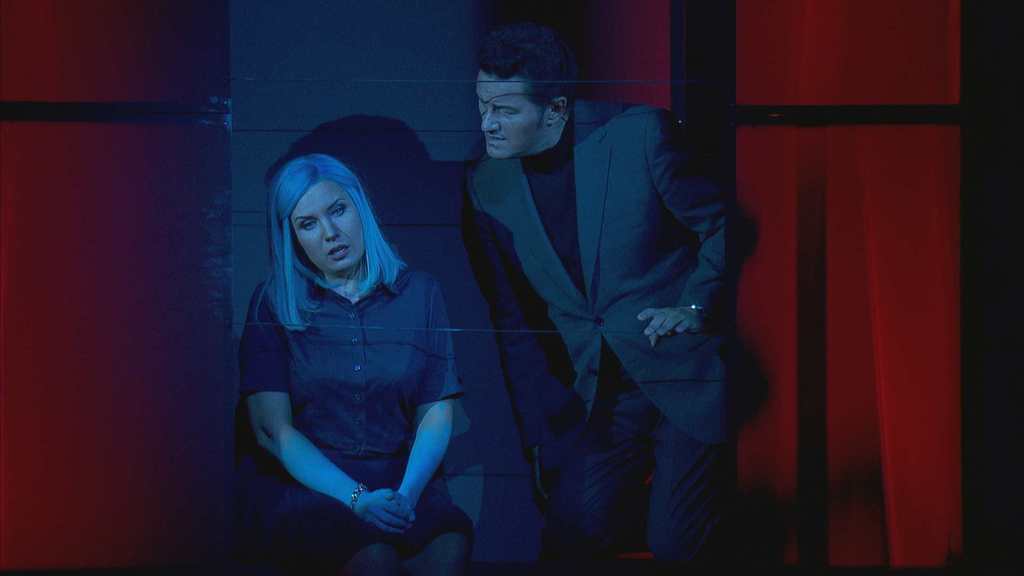
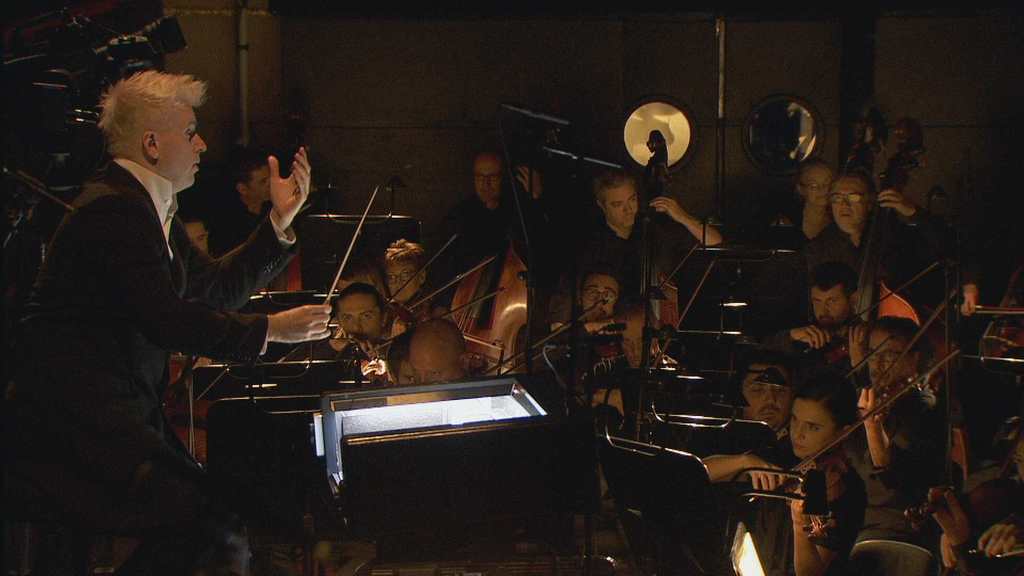
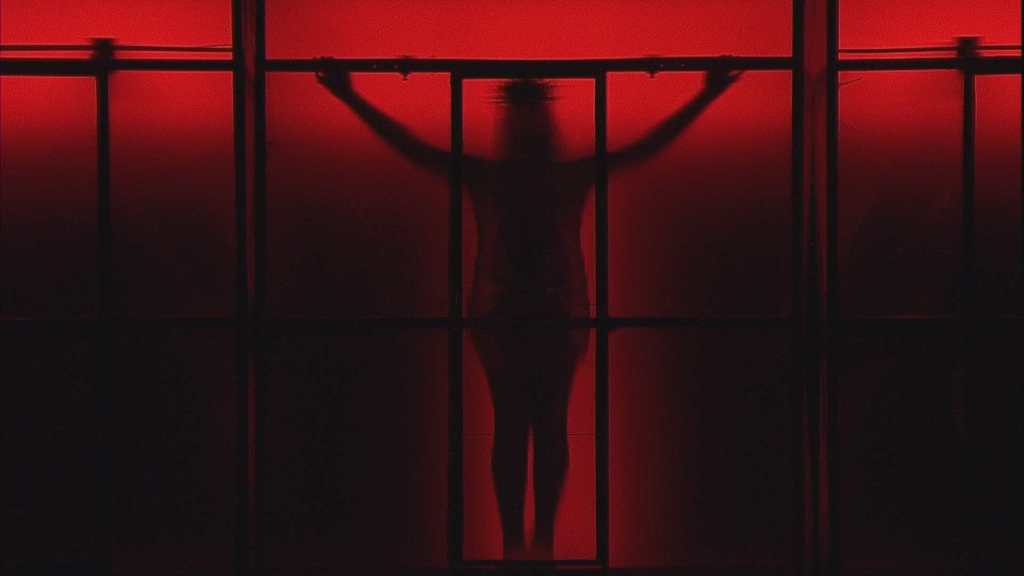
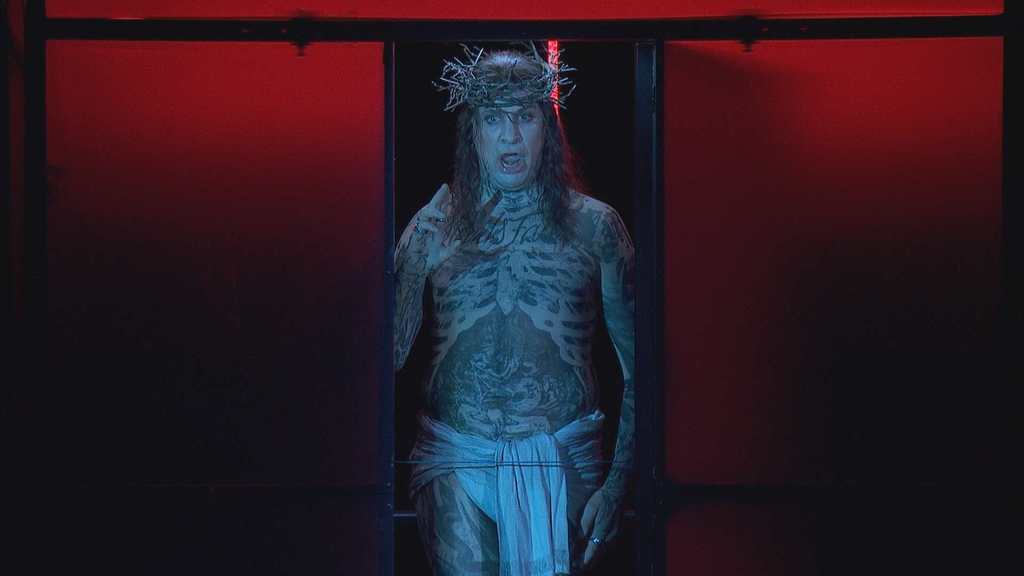
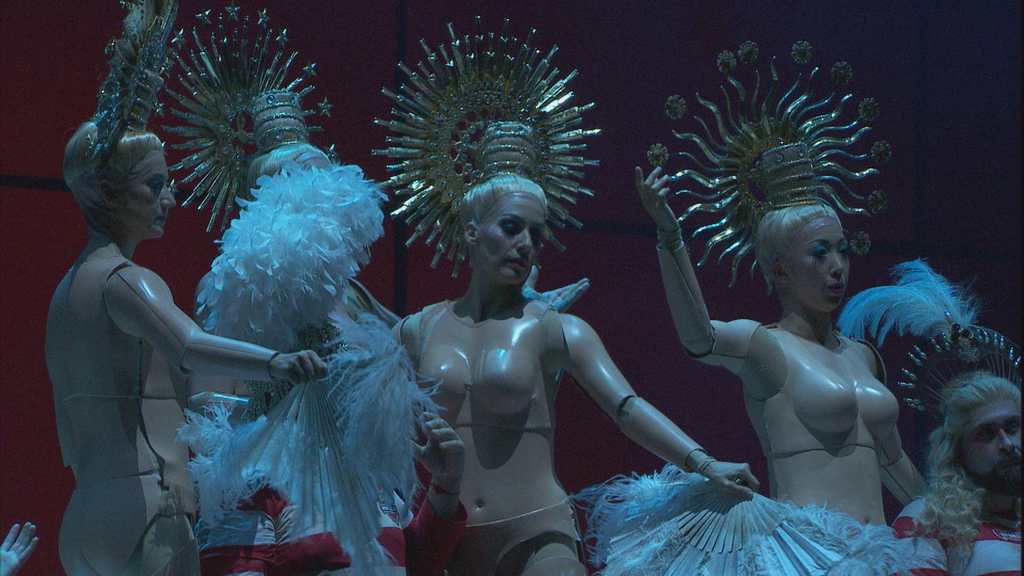

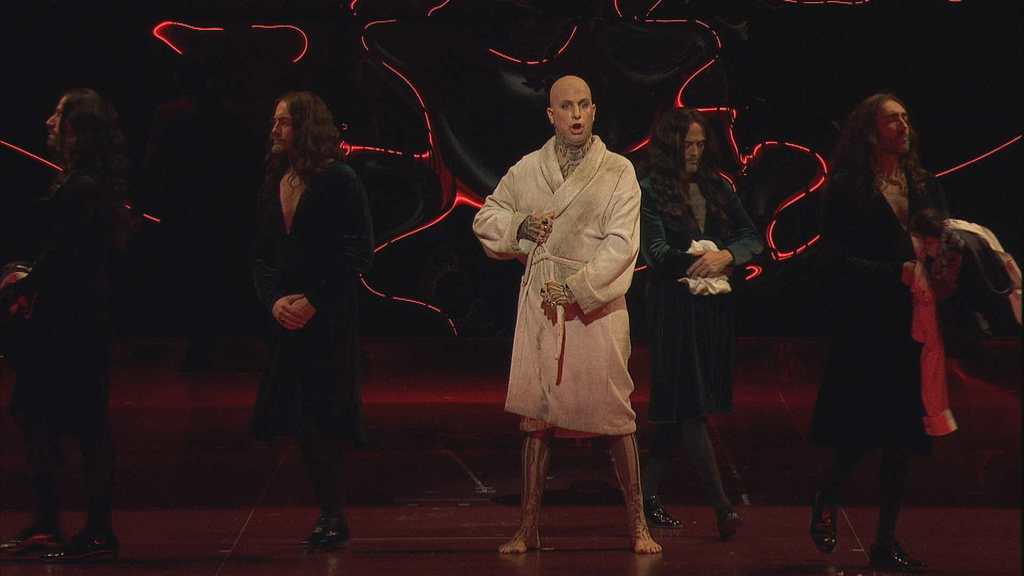
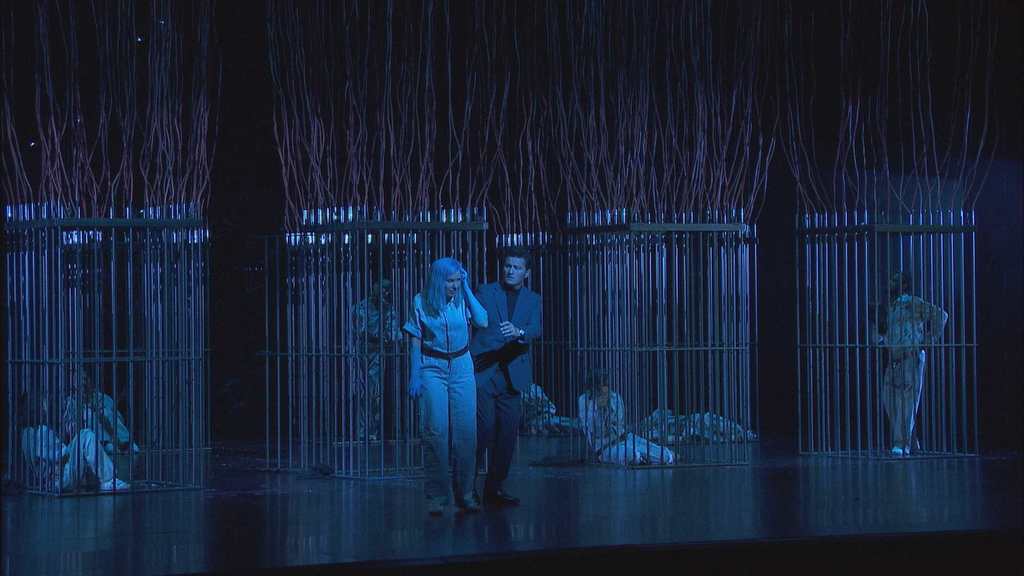
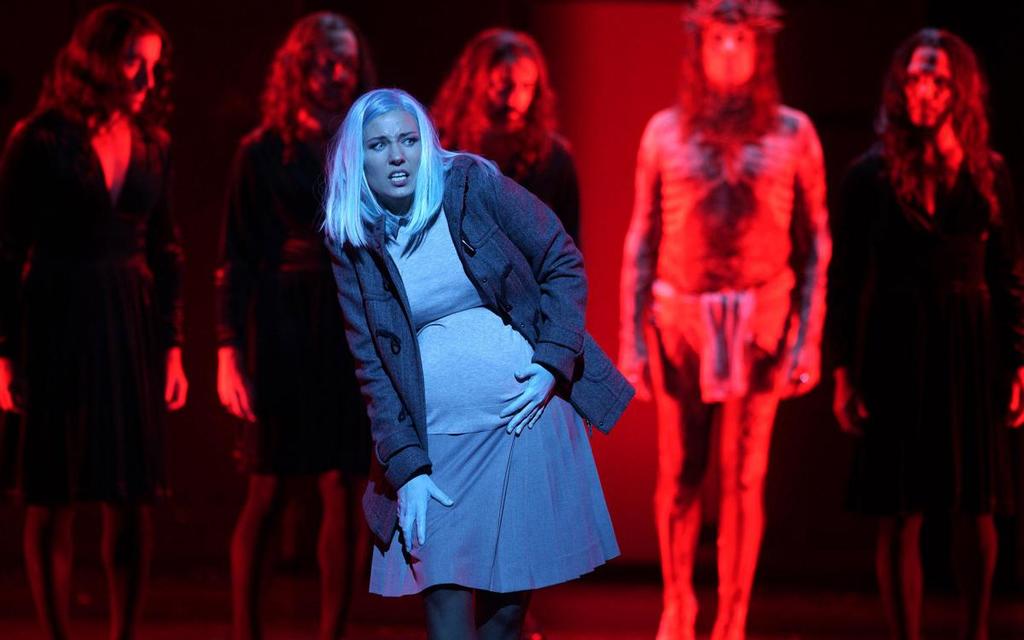
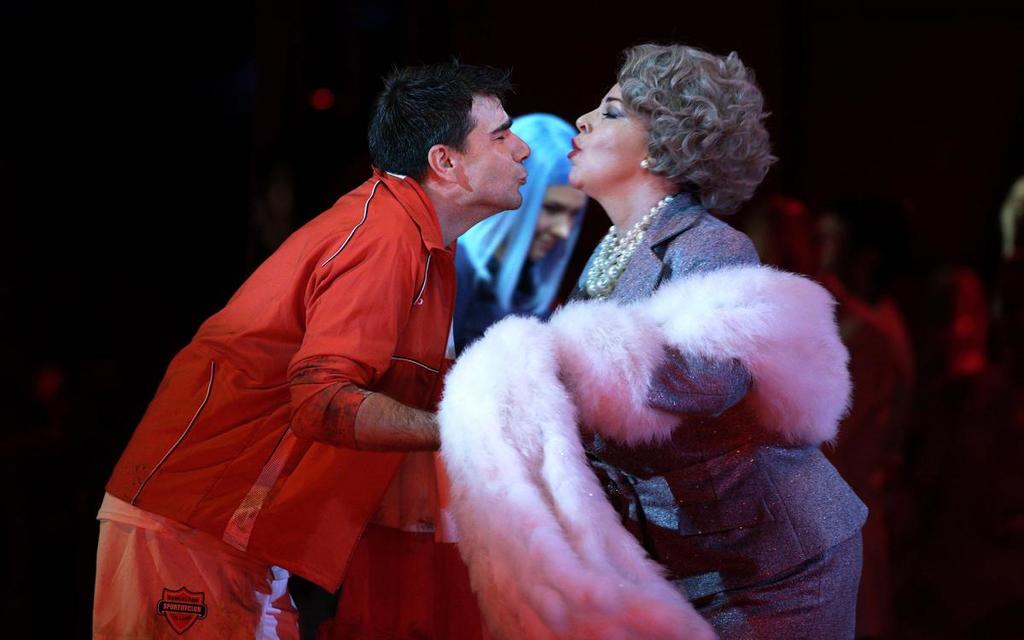
.jpg)